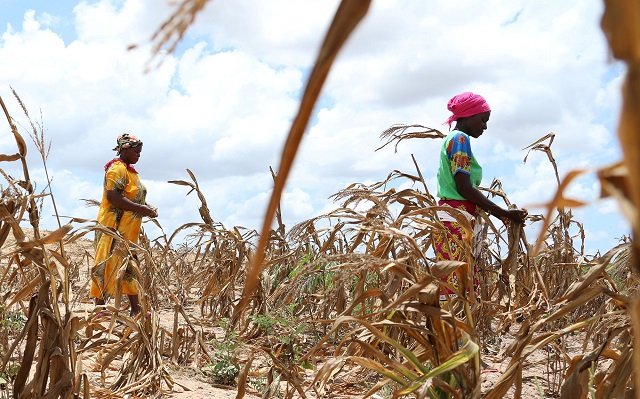Kampala, Uganda | THE INDEPENDENT | Uganda will suffer significant economic loss if global warming is not limited to below 2°C, according to a new study by the Center for Global Development; a Washington D.C based think tank that focuses on international development. Production of important food staples such as maize and beans could decline.
The report reviews the patterns and trends of the impact of climate change on socioeconomic indicators, including economic growth, agricultural productivity, poverty, food security, health, water resources, and the energy sector.
Generally, the report says if climate change continues on its current trend, crop production in Africa will decline by 2.9% in 2030 and by 18% by 2050.
As a result, about 200 million people risk suffering from extreme hunger by 2050. There will be a crop revenue loss of approximately 30% which will cause a rise in poverty of between 20% and 30% compared to a no-climate-change scenario.
This will happen because climate change will drive agricultural production down, so crop sales will suffer although scarcity will raise prices.
The report says the prevalence of undernourishment increased from 8 percent in 2019 to 9.8 percent in 2021. Asia, Africa, Latin America, and the Caribbean were the most affected regions. In these regions, 425 million, 278 million, and 56.5 million people were undernourished in 2021, respectively. With climate change affecting the global food supply chain, more people might face extreme food insecurity.
These findings and others that cover countries across the globe are contained in a report entitled: `The Socioeconomic Impact of Climate Change in Developing Countries in the Next Decades: A review’. It is written by Associate Professor Philip Kofi Adom, an Environment and energy economist in the School of Economics and Finance, University of the Witwatersrand, South Africa. To come up with the report, Prof. Adom synchronised many years of research by climate change scientists and researchers.
